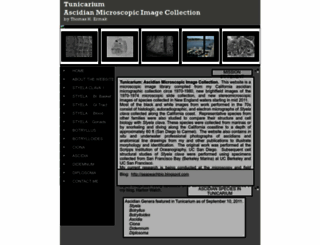Home
Page Load Speed
989 ms in total
First Response
119 ms
Resources Loaded
662 ms
Page Rendered
208 ms

About Website
Visit tunicarium.com now to see the best up-to-date Tunicarium content and also check out these interesting facts you probably never knew about tunicarium.com
Sharing my work and passion for photography
Visit tunicarium.comKey Findings
We analyzed Tunicarium.com page load time and found that the first response time was 119 ms and then it took 870 ms to load all DOM resources and completely render a web page. This is quite a good result, as only 20% of websites can load faster.